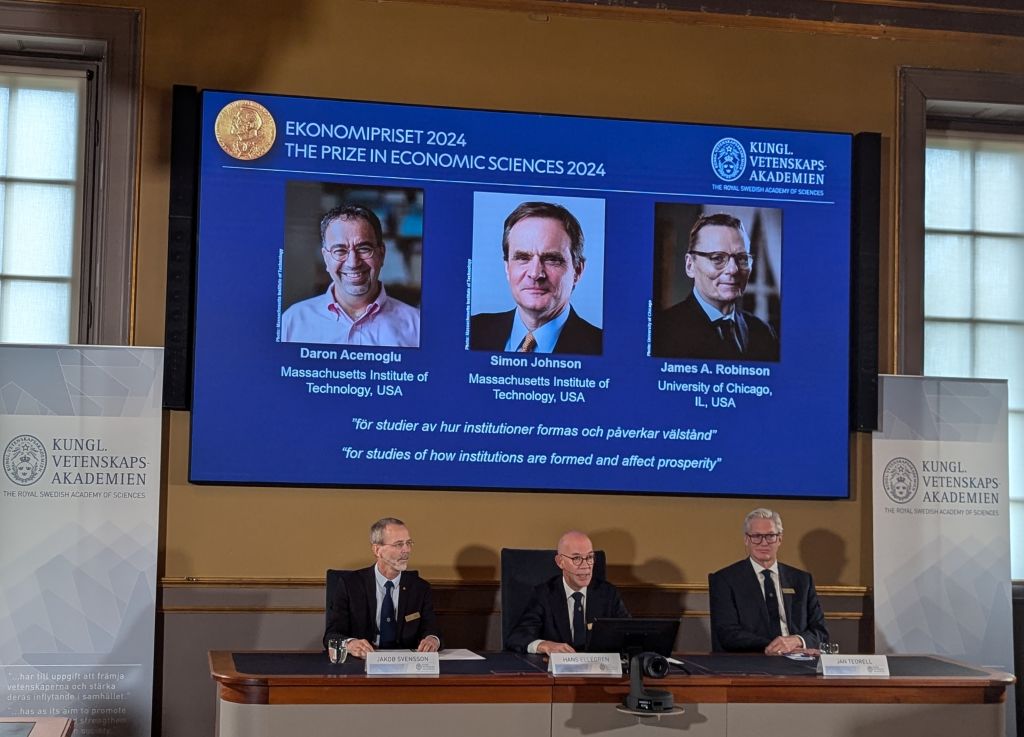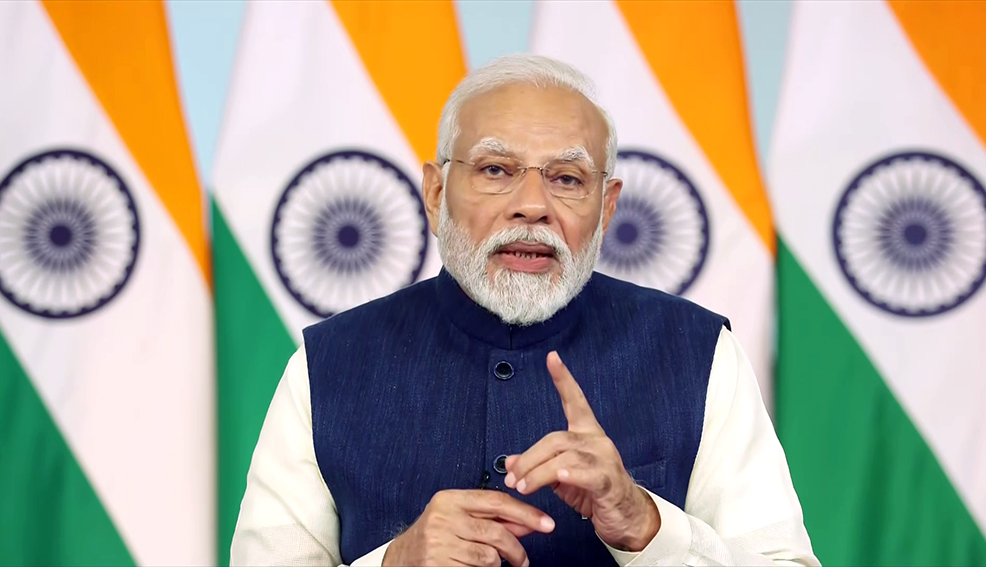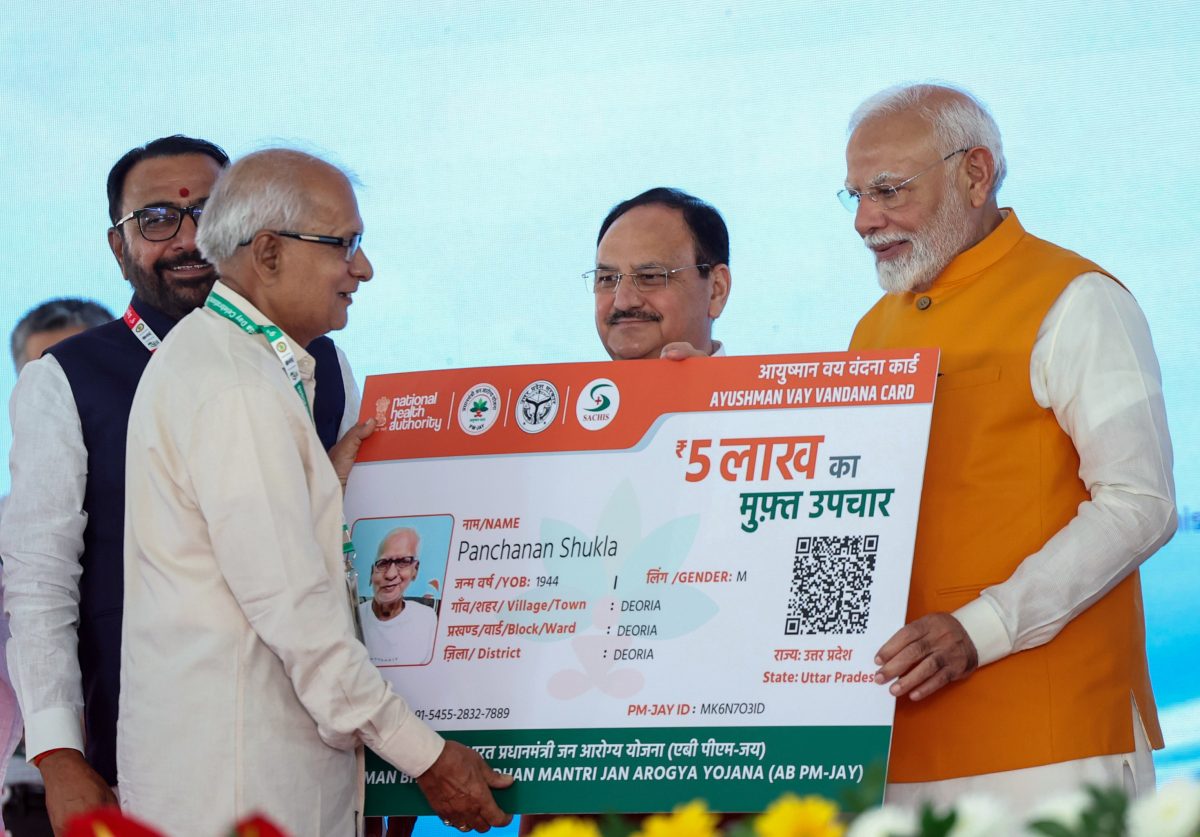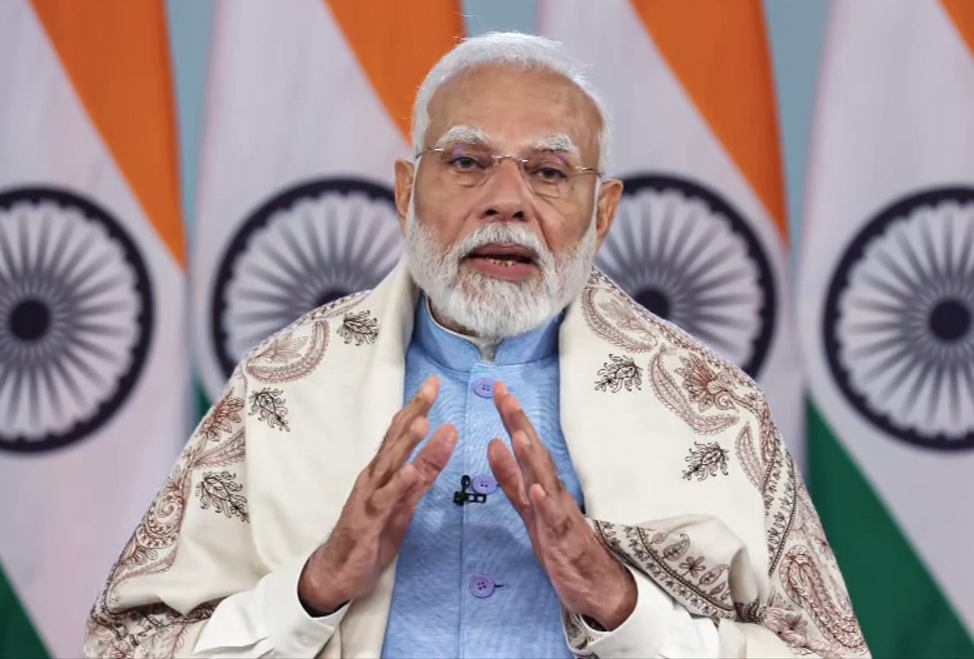Three U.S.-based academics won the 2024 Nobel Economics Prize on Monday for their research into why global inequality persists, especially in countries dogged by corruption and dictatorship.
Simon Johnson and James Robinson, both British-American, and Turkish-American Daron Acemoglu were commended for their work on “how institutions are formed and affect prosperity”, the Royal Swedish Academy of Sciences said.
“Reducing the vast differences in income between countries is one of our time’s greatest challenges. The laureates have demonstrated the importance of societal institutions for achieving this,” said Jakob Svensson, Chair of the Committee for the Prize in Economic Sciences.
“They have identified the historical roots of the weak institutional environments that characterize many low-income countries today,” he told a press conference.
The award came a day after World Bank report showed that the world’s 26 poorest countries – home to 40% of its most poverty-stricken people – are more in debt than at any time since 2006, highlighting a major reversal in the fight against poverty.
The prestigious award, formally known as the Sveriges Riksbank Prize in Economic Sciences in Memory of Alfred Nobel, is the final prize to be given out this year and is worth 11 million Swedish crowns ($1.1 million).
Acemoglu told the Nobel press conference that data gathered by pro-democracy groups showed that public institutions and rule of law in many parts of the world were being weakened.
“I think this is a time when democracies are going through a rough patch,” Acemoglu said. “And it is in some sense quite crucial that they reclaim the high ground of better governance, cleaner governance, and delivering sort of the promise of democracy to a broad range of people.”
Acemoglu and Johnson work at the Massachusetts Institute of Technology, while Robinson is at the University of Chicago.
TECHNOLOGY THROUGH THE AGES
Acemoglu and Johnson recently collaborated on a book surveying technology through the ages which demonstrated how some technological advances were better at creating jobs and spreading wealth than others.
The economics award is not one of the original prizes for science, literature and peace created in the will of dynamite inventor and businessman Alfred Nobel and first awarded in 1901, but a later addition established and funded by Sweden’s central bank in 1968.
Past winners include a host of influential thinkers such as Milton Friedman, John Nash – played by actor Russell Crowe in the 2001 film “A Beautiful Mind” – and, more recently, former U.S. Federal Reserve Chairman Ben Bernanke.
Research into inequality has featured strongly in recent awards. Last year, Harvard economic historian Claudia Goldin won the prize for her work highlighting the causes of wage and labour market inequality between men and women.
In 2019, economists Abhijit Banerjee, Esther Duflo and Michael Kremer won the award for work on fighting poverty.
The economics prize has been dominated by U.S. academics since its inception, while U.S.-based researchers also tend to account for a large portion of winners in the scientific fields for which 2024 laureates were announced last week.
That crop of prizes began with U.S. scientists Victor Ambros and Gary Ruvkun winning the prize for medicine on Monday and concluded with Japan’s Nihon Hidankyo, an organisation of survivors from Hiroshima and Nagasaki who campaigned for the abolition of nuclear weapons landing the award for peace on Friday.
(Reuters)




















